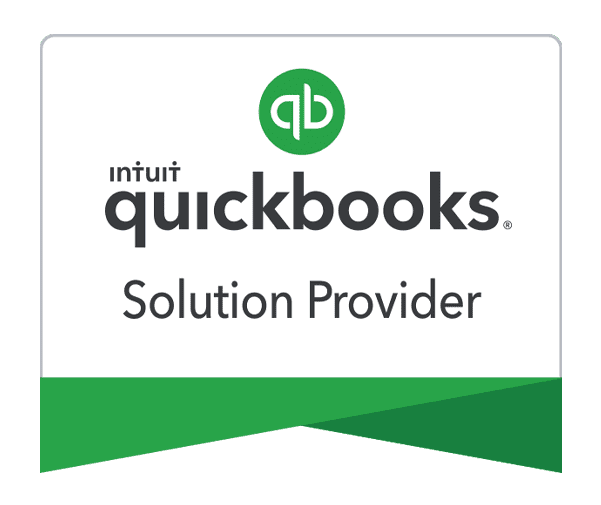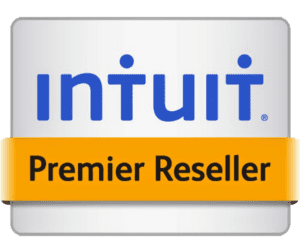Just register for the free trial below and we will send you everything you need to evaluate QuickBooks Online including 30-day access, the full 76-page QuickBooks Online Guide (details everything that you can do in the software) plus the video training library. Free end-to-end consultation and support are included so if you need any help along the way, just let us know!
QuickBooks Online vs. QuickBooks Self-Employed: Which One Is Right for You in 2024?

Paygration, Inc.
QuickBooks Online and QuickBooks Self-Employed are two different products created for distinct business purposes. QuickBooks Online is great for businesses needing powerful double-entry accounting, while QuickBooks Self-Employed is recommended for freelancers and self-employed professionals who need a simple solution for invoicing, income and expense management, and tax reporting.
In this article, we’ll compare QuickBooks Online and QuickBooks Self-Employed to see which one is right for your business.
QuickBooks Online
QuickBooks Online is a comprehensive accounting software solution designed for small to medium-sized businesses. It provides a wide range of features and functionalities that cover all aspects of financial management.
QuickBooks Online’s dashboard
If you would like to try the full version of QuickBooks Online Advanced, click here to get a free 30-day no-commitment trial plus access to the full video training library.
Key Features of QuickBooks Online
- Double-Entry Accounting: QuickBooks Online utilizes a double-entry accounting system, which is essential for businesses that require precise financial tracking and reporting.
- Income and Expense Tracking: QuickBooks Online allows you to categorize and track all income and expenses easily, offering a clear overview of your financial health.
- Invoicing and Payment Processing: With QuickBooks Online, you can create professional invoices, send them to clients, and even accept online payments, making it easier to manage cash flow. QuickBooks Online also has advanced invoicing features, such as the ability to create recurring invoices. Learn more about recurring invoices in QuickBooks Online.
- Bank Reconciliation: Automatically sync your bank and credit card transactions with QuickBooks Online, simplifying the reconciliation process.
- Inventory Management: Suitable for businesses that deal with physical products, QuickBooks Online provides inventory tracking and management features. Explore how to set up inventory products in QuickBooks Online.
- Custom Reports and Dashboards: Generate various financial reports and customize dashboards to monitor key performance indicators (KPIs) effectively. Managers can also generate management reports to see how their business is doing.
- Integration with Third-Party Apps: QuickBooks Online integrates with a wide range of third-party applications, allowing you to extend its functionality as your business grows. Discover how to manage integrations in QuickBooks Online.
- Multi-User Access: Collaborate with your team and provide different levels of access to employees, accountants, or other stakeholders.
- Tax Support: Simplify tax filing by generating reports, tracking deductible expenses, and exporting tax data directly to tax software.
- Payroll Processing: QuickBooks Online offers payroll services, including direct deposit, tax calculations, and employee time tracking (available as an add-on).
QuickBooks Self-Employed
QuickBooks Self-Employed, on the other hand, is designed specifically for freelancers, sole proprietors, and independent contractors. It streamlines basic financial tasks and simplifies tax reporting for individuals with straightforward business structures.
QuickBooks Self-Employed’s dashboard (Source: QuickBooks)
Key Features of QuickBooks Self-Employed
- Simple Income and Expense Tracking: QuickBooks Self-Employed allows you to track your business income and expenses easily, helping you stay organized.
- Quarterly Estimated Taxes: QuickBooks Self-Employed helps you calculate and pay quarterly estimated taxes, making it a handy tool for self-employed individuals who need to manage their tax obligations.
- Mileage Tracking: Record and categorize your mileage for business-related travel, helping you claim deductions during tax time.
- Invoice Creation: Create basic invoices to bill clients for your services, though the invoicing features are more limited compared to QuickBooks Online.
- Tax Deduction Tracking: The program helps you identify potential tax deductions based on your business expenses.
- Integration with TurboTax: QuickBooks Self-Employed seamlessly integrates with TurboTax, making it easier to transfer your financial data for annual tax preparation.
QuickBooks Online vs. QuickBooks Self-Employed: Key Differences
Now that we’ve covered the main features of both QuickBooks Online and QuickBooks Self-Employed, let’s delve into the key differences between the two:
1. Business Complexity:
- QuickBooks Online: Suitable for businesses of varying sizes and complexities, offering features like inventory management, customizable reports, and multi-user access.
- QuickBooks Self-Employed: Designed for freelancers and independent contractors with straightforward financial needs.
2. Tax Management:
- QuickBooks Online: Offers more comprehensive tax support and can handle the tax needs of a broader range of business types.
- QuickBooks Self-Employed: Focuses primarily on simplifying tax reporting and estimated tax payments for self-employed individuals.
3. Invoicing:
- QuickBooks Online: Provides robust invoicing capabilities, ideal for businesses that need to send detailed invoices to clients.
- QuickBooks Self-Employed: Offers basic invoicing functionality for freelancers and sole proprietors.
4. Cost:
- QuickBooks Online: Generally more expensive than QuickBooks Self-Employed due to its wider range of features and capabilities.
- QuickBooks Self-Employed: Offers a lower-cost solution, making it an affordable option for self-employed individuals.
5. Scalability:
- QuickBooks Online: Scales well as your business grows, offering more advanced features for evolving needs.
- QuickBooks Self-Employed: Best suited for single-person businesses and may not accommodate complex business structures or larger teams.
Which One Is Right for You?
Choosing between QuickBooks Online and QuickBooks Self-Employed depends on your specific business needs and complexity. Here are some recommendations:
- QuickBooks Online: Choose QuickBooks Online if you run a small to medium-sized business with complex accounting requirements, need robust reporting capabilities, and have employees or collaborators who need access to your financial data. It’s also a suitable choice if you manage inventory or require advanced invoicing.
- QuickBooks Self-Employed: Opt for QuickBooks Self-Employed if you are a freelancer, sole proprietor, or independent contractor with straightforward financial requirements. It’s a cost-effective solution that simplifies tax reporting and estimated tax payments, making it ideal for those who prioritize ease of use and affordability.
Wrap Up
Both QuickBooks Online and QuickBooks Self-Employed offer valuable tools for managing your finances, but they cater to different audiences. By assessing your business’s specific needs and goals, you can make an informed decision about which QuickBooks product best suits you.
















